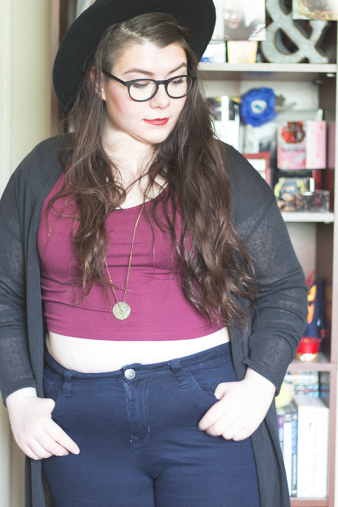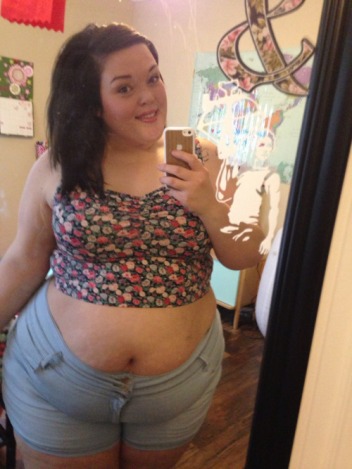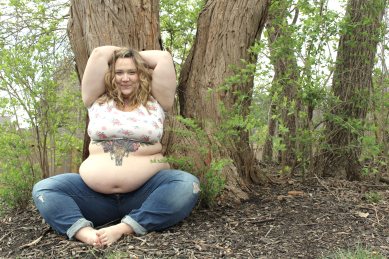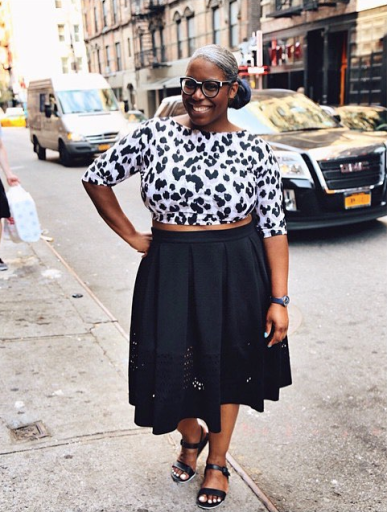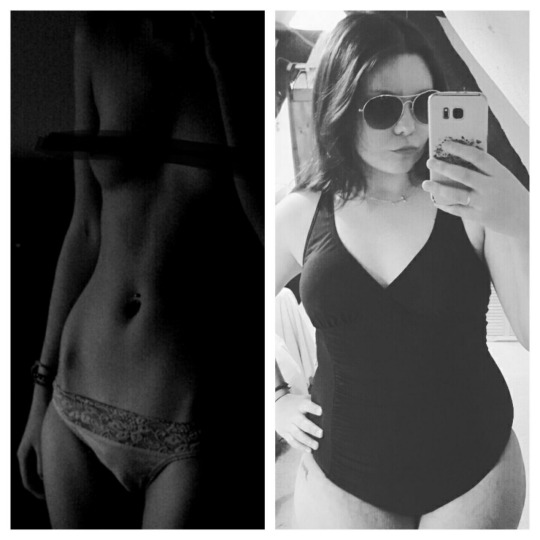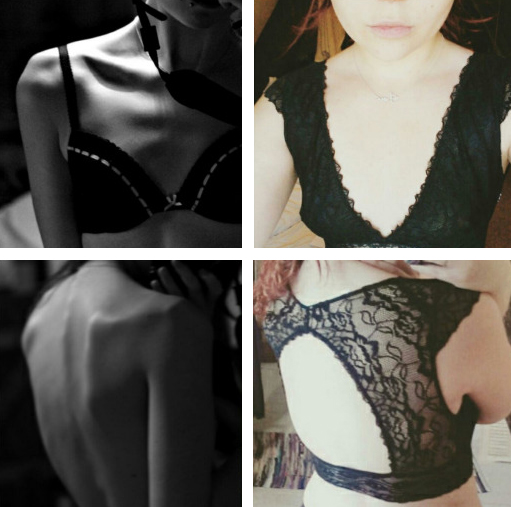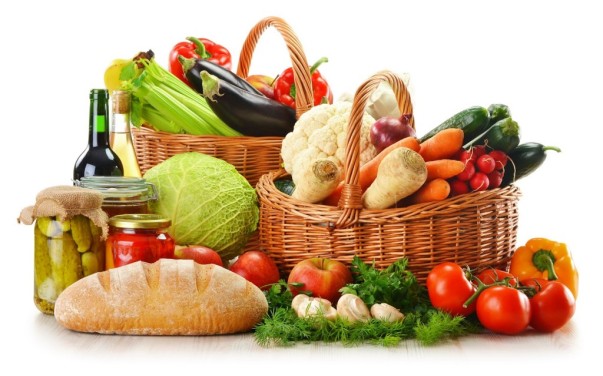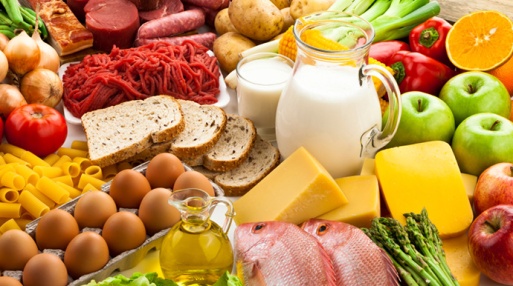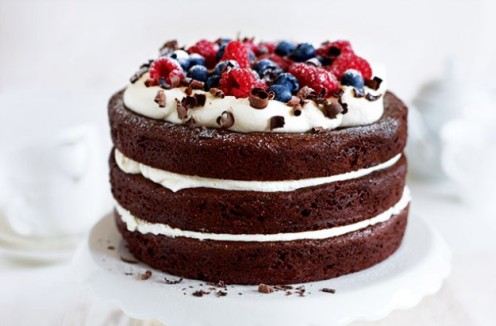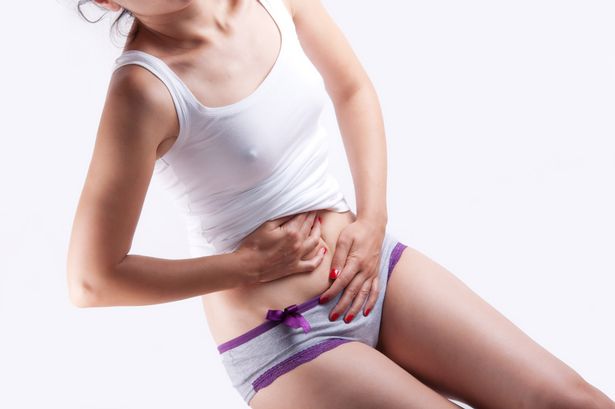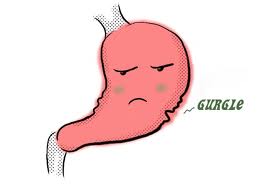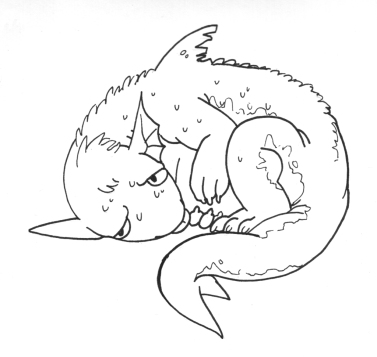
Domestic abuse is an important topic in general, and it’s an important topic for me. So although this website is primarily for eating disorders, I wanted to talk today about that topic, in particular domestic abuse experienced by teenagers and young adults. I know that the demographic for this site is primarily young women, and so this subject is pertinent for many of those who visit it, especially as girls and young women between the ages of 16 and 24 experience the highest rate of intimate partner violence — almost triple the national average, and the severity of intimate partner violence is often greater in cases where the pattern of abuse was established in adolescence. Terrifyingly, a 2005 NSPCC and Sugar magazine survey showed that 40% of teenage girls would consider giving their boyfriend another chance if he hit them, and one third said that cheating justified the use of violence. In light of these horrifying statistics, I wanted to write this for both young people experiencing intimate partner abuse, and for the parents of abusers and of victims.
Anyone who hasn’t experienced abuse may be unfamiliar with the warning signs. Young people especially have often not been exposed to much, if any, discussion of abuse – in particular emotional and verbal abuse. Sexual and physical abuse is a topic most young people will have at least some knowledge of, but emotional and verbal abuse is on the whole more subtle and therefore there isn’t so much awareness or education about it. Emotional and verbal abuse are just as important to be educated about, as they can be just as mentally damaging, and are also a red flag for the development of physical abuse in the future. If someone had taught me about domestic abuse and the dangers and damage of it, maybe I could have avoided years of emotional, verbal, and physical abuse when I was a teenager. Maybe I could have been convinced to take a step back and assess the situation with educated eyes, and maybe I would have been able to walk away from day 1. Although I am aware that all events in our lives shape our future and I wouldn’t change my life now for a second, I wish I hadn’t had those experiences. I wish I hadn’t had that relationship. I wish I didn’t have those memories. There is no way to benefit from an abusive relationship; no positive outcome; no happy ending. Any good experiences with that person will always be overshadowed by the the reality of the nature of the relationship. My abuser was abusive from the very beginning, but I didn’t recognise his behaviour as such (I wrote a bit about my experience with domestic abuse here).
The types of domestic abuse someone can experience are as follows:
- Physical abuse
- Emotional abuse
- Psychological abuse
- Sexual abuse
- Financial abuse
I will be focusing mainly on emotional abuse (which includes verbal abuse) and will also be talking some about physical and sexual abuse. You can view examples of all types of domestic abuse here.
Statistics have shown that nearly 1.5 million high school students nationwide experience physical abuse from a dating partner in a single year. One in three adolescents in the U.S. is a victim of physical, sexual, emotional or verbal abuse from a dating partner, and 27% of teenage girls in the UK aged 13-17 had experienced sexual violence in their relationships. One in nine female respondents had experienced severe physical violence; and almost three quarters of girls had experienced emotional abuse.
Where young adults are concerned, nearly half (43%) of dating college women report experiencing violent and abusive dating behaviours. It is also apparent that college students are not equipped to deal with dating abuse – 57% say it is difficult to identify. One in three (36%) dating college students has given a dating partner their computer, email or social network passwords and these students are more likely to experience digital dating abuse. One in six (16%) college women has been sexually abused in a dating relationship. (statistics from here).
So what does domestic abuse look like, especially in a situation with teenagers and young adults?
- Is your boyfriend very jealous and possessive of you?
- Does he get angry when you want to spend time with your friends or demand that you spend all your time with him?
- Does he check your phone, email, Facebook and twitter accounts?
- Does he try and get you to defriend people on Facebook, take down your photos, or stop you messaging your friends?
- Is he always calling, texting or BBMing you to check where you are and who you’re with?
- Does he tell you what to wear or how to do your hair?
- Does he laugh at you or put you down in front of other people?
- Does he get aggressive? Does he hit, shove, slap or kick you?
- Does he threaten to harm you – or himself?
- Does he call you names?
- Does he pressure you to have sex when you don’t want to, telling you that “everyone is doing it” or that you would do it “if you really loved him”?
- If you are frightened of your partner, or feel that you have to change your behaviour because you are scared of his reaction, you are being abused.
What can I do?
If you are being abused, it may help to remember the following:
- If you are in immediate danger, call 999 (or whatever your emergency services number is). The police have a duty to investigate and help you stay safe
- You are not alone. Refuge helps many young women and teenage girls who are experiencing abuse. We can help you too
- The abuse is not your fault. Your partner may blame you for his behaviour – perhaps saying that you “made him hit you” – but he alone is responsible for his actions
- Abuse is never ok. You deserve to be with someone who respects you and makes you feel safe
- You don’t have to deal with this on your own. Try and talk to someone you trust – perhaps a friend, teacher or parent. Or call the Freephone 24 Hour National Domestic Violence Helpline, run in partnership between Refuge and Women’s Aid. We’re here for you 24 hours a day, 365 days a year. All calls are confidential
Computers and mobile phones can be used by abusers to monitor and stalk partners.
The above was from here.
More information of what abuse looks like:
Abusive partners are often jealous. An abuser may equate jealousy with love. They may ask you who you talk to, who you see, accuse you of flirting or others of flirting with you, or become jealous of time spent with others. They may even forbid you to see certain people (or everyone). They may text or call frequently during the day to “check up” on where you are or who you are with. They may drop by unexpectedly, refuse to let you go to college or work, check the car mileage, or ask friends to watch you.
In the beginning an abuser will attribute controlling behaviour to concern for you (for example, for your safety or lack of decision-making skills). As this behaviour progresses the situation may worsen, and the abuser may assume all control of finances (so telling you what to spend your money on or spending it for you) or prevent you from coming and going freely. They may control who you see, what you do, how you spend your time, and what you wear.
Quick involvement is also a sign of abuse. You may have only known or dated your abuser for a brief period of time before getting engaged or even living together. Your abuser will often pressure the victim to commit to the relationship. You may be made to feel guilty for wanting to slow the pace or end the relationship. Pressure for quick (or any, if you are a teenager) sexual involvement is also a red flag.
An abuser may have unrealistic expectations. An abuser may expect you to meet all of their needs. They may expect you to be able to do everything for them and be responsible for making them feel better whenever they feel bad.
An abuser may attempt to isolate you by severing your ties to outside support and resources. They may accuse your friends and family of being “trouble makers.” The abuser may block your access to use of a vehicle, work, or telephone service when you are with them, so you are unable to contact anyone else whilst with them. As a young person it is likely that you live at home and so much of this may not be part of your abusers tactics as this is fairly impossible to accomplish, but they may try to separate you from your friends, and they may try to turn you against the people close to you.
An abuser will often blame others for all problems or for their own shortcomings and are often unable to take responsibility for wrongdoing. An abuser may claim to be being victimised by someone, and it could be you that is blamed for almost anything. However, it is also common for abusers to initially take responsibility for their actions against you, and promise not to do it again, and continue to say this every time it happens (because it always happens again).
An abuser will use feelings to manipulate you. They will blame you for how they feel, and use it to get you to do what they want. They will often say that you are the centre of their world, or their everything, and so attempt to make you feel responsible for how they are and how they feel all of the time. An abusive person is also often easily insulted, and hypersensitive.
“Playful” use of force in sex is also a behaviour that also includes restraining partners against their will during sex, acting out fantasies in which the partner is helpless, initiating sex when the partner is asleep, or demanding sex when the partner is ill or tired. The abuser may show little concern for your wishes and will use sulking and anger to manipulate compliance. It is important to note here that the second example given can be consensual and dominant and submissive roles in the bedroom can be perfectly normal as long as you have given express permission and feel 100% comfortable and interested in acting this out. If you feel at all uncomfortable, this is not okay. Rigid sex roles may be a behaviour. You will be expected to serve. A male abuser may see women as inferior to men, responsible for menial tasks, stupid, and unable to be a whole person without a relationship. Again, rigid sex roles may be a consensual decision, but if you feel at all uncomfortable with it, this is not okay. If a partner has sex with you without your consent, this is rape. If a partner engages in sexual activity with you without your consent, this is sexual assault. Consent means that you have said yes to engaging in sexual activity or sex with your partner. Consent is not consent if it’s under coercion or threat, and you are also unable to give consent when under the influence of alcohol. Consent means saying yes and feeling comfortable with that decision.
Verbal abuse is a big one for abusers. This behaviour involves saying things that are intended to be cruel and hurtful, cursing or degrading you, or putting down your accomplishments. This also includes name-calling.
Having a dual personality; seeming like they can be two people – the nice one and the nasty one. Explosive behaviour, moodiness, being aggressive etc, which can shift quickly to being nice, are typical of people who are abusive.
Threats of violence are a sign of an abuser. This consists of any threat of physical force meant to control the partner. Most people do not threaten their mates but an abuser could excuse this behaviour by claiming “everyone talks like that.”
Breaking or striking objects is used as punishment (breaking sentimental possessions) or to terrorise the victim into submission.
Any force during an argument, which may involve an abuser holding you down, physically restraining you from leaving, or pushing or shoving. Holding someone back in order to make demands, such as “You will listen to me!” is also a show of force. Physical violence also includes strangling, throwing objects at you, throwing you, or pushing you over.
It is important to remember that an abuser will abuse any partner if the individual is involved with the abuser long enough for the cycle of abuse to begin. Circumstances do not make a person an abusive personality. You or your abuser’s environment are not at fault for any abusive behaviour. The responsibility lies with the abuser.
These warning signs came from information from here. What strikes me is that even with how educated/experienced I now am with domestic abuse, I only learned when writing this article that quick involvement is a warning sign for abuse – yet another sign that I missed and only learned about just now, typing this.
It is important to note that not everyone who displays jealousy, or mildly controlling behaviour, or blames others for their mistakes is an abuser, but these are still signs of an unhealthy relationship. Persistent signs of the former attributes combined with any of the other signs are big red flags of an abuser. If you feel that these apply to your partner, please talk to a trusted adult about this and/or call the national domestic violence helpline (website linked) on 0808 2000 247. It is crucial to state that emotional and verbal abuse often leads to physical violence.
As a teenager I felt unable to leave the relationship that I was in, so if you feel that your partner is being abusive but feel unable to leave, I understand. However, I want to tell you that to stay with that partner only prolongs your pain. I know how ridiculously hard it is to leave someone that you are emotionally involved with, but you need and deserve to be in a healthy and happy relationship – and you will find this. It can be even harder when you don’t know what a healthy relationship looks or feels like – you may even be convinced that this is the norm, but it’s not. There are wonderful men/women out there who will treat you in a way that you deserve; in a way that any decent human being would treat another: with respect and care. It may feel like the end of the world at the time to leave someone that you love who is abusive, but time heals, and you can and will move on to bigger and better things. It may feel like it will tear you apart to leave, but I promise you that an abusive relationship will leave far greater scars. The fewer experiences and memories that you have of any abuse, the better. You do not deserve to be put through any instances of abuse, and with time, you will realise how your relationship was only harming you.
Violent relationships in adolescence can have serious ramifications by putting the victims at higher risk for substance abuse, eating disorders, risky sexual behaviour and further domestic violence. Being physically or sexually abused makes teen girls six times more likely to become pregnant and twice as likely to get a STI. Half of youth who have been victims of both dating violence and rape attempt suicide, compared to 12.5% of non-abused girls and 5.4% of non-abused boys. Only 33% of teens who were in a violent relationship ever told anyone about the abuse. These facts and statistics are terrifying. It is also worth noting that abusers are hard to get rid rid of, so the faster you get rid of them, the better. Abusers like to feel in control, and for them it can mean controlling others around them, especially (and often exclusively) their partners. Even when you have ended the relationship, they can harass and attempt to emotionally abuse you from afar. I can tell you this from experience, because my abuser has continuously tried to contact me since we ended for good 6 years ago. People who have any respect for you will move on with their lives and leave you to yours. If you have broken up with an abusive partner and are still experiencing harassment and abuse from them, block them on all social media, block their numbers, tell a trusted adult, and seek advice from the police or citizens advice bureau, especially if they are threatening to harm you or anyone else, or destroy your property.
If you feel that you are experiencing any forms of abuse, please know that it is not your fault. It is not your fault. It is not your fault. You do not deserve it. Even if you do not feel like a victim, you are. Your abuser will not change, however much they try to convince you of that fact, and however much you hope they will. Please tell a trusted adult. Please phone a helpline. Please get help and support. You do not have to be alone with this, and you do not have to be in this relationship. You need and deserve to leave it and you deserve to lead a happy life with healthy relationships.
If you are a parent
81% of parents believe teen dating violence is not an issue or admit they don’t know if it’s an issue. Though 82% of parents feel confident that they could recognize the signs if their child was experiencing dating abuse, a majority of parents (58%) could not correctly identify all the warning signs of abuse (statistics from here). It is so important that you are aware of the relationships that your children are engaging in if they are under the age of 18. Although I was a wilful and determined child and would have probably have continued with my relationship anyway, did I make informed decisions? No, I did not. I wish my parents had played more of a part in educating me about the warning signs of abuse and I wish my school had taught me more about this too. Although my mother did have a short word with my abuser about his behaviour, it of course continued. I wish that my parents had not “respected my wishes”and kept my father from saying anything to my abuser. I wish that they had called his parents and told them what he was doing. I thought that I knew what I was doing at the time, but I was a child, and I transitioned into a young adult finding it almost impossible to separate myself from my abuser. I was an extremely strong and resilient child/young adult, and I could see quite logically that what I was experiencing was absolutely unacceptable, and yet I could not untangle myself from the situation I had become so embroiled in.
So as a parent, what can you do to help?
The following information is taken from here.
There are many reasons why teens don’t tell parents about the abuse. They may be embarrassed or ashamed, and may blame themselves. They may be afraid their parents will make them break up, convinced that it is their fault or that their parents will blame them or be disappointed in them, and afraid of losing privileges. They are often afraid of retaliation from their partner for telling. They may have little or no experience with healthy dating relationships and confuse jealousy with love. They may not recognize that they are being abused. If you suspect your teenager is being abused…
- DO give your child a chance to talk. Stay calm. Listen without judging them. Believe them!
- Use clear language to describe what you see is happening.
- Acknowledge that they are in a very difficult and scary situation. Tell them that you are concerned for their safety and well-being and that you are there for them.
- Ask them what they would like to have happen…how can you help them be safe.
- Keep the lines of communication open!
- Educate yourself—access online resources, read, call Caring Unlimited for information and/or support for yourself!
- DON’T try to rescue them. Resist this natural impulse. It will likely shut them down.
- Blame them for the abuse or make them feel judged.
- Punish them because of an abusive partner.
- Criticize their partner—you don’t want them taking energy to defend the person
If you suspect your teenager is being abusive
What you may see:
- Jealous or possessive behaviour toward the dating partner
- Controlling or bossy behaviour
- Guilt Tripping—”If you loved me you would…”
- Blaming the victim for everything that goes wrong
- Obsessing over the partner’s behaviour or actions
- Unreasonable or gender-based expectations of their dating partner
What You Can Do
- Ask, “Why do you think it’s okay to treat ______ that way?”
- Confront disrespectful behaviour/language. Explain that it’s not OK with you.
- Let your child know that controlling behaviours are abusive and will prevent them from having a healthy, happy relationship.
- Hold your child accountable. Don’t accept excuses or allow them to blame the other.
- Model respectful behaviour towards your partner
- Educate yourself and your teenager about controlling behaviours by accessing online and other resources.
The following information is taken from here.
Knowing or even suspecting that your child is in an unhealthy relationship can be both frustrating and frightening. But as a parent, you’re critical in helping your child develop healthy relationships and can provide life-saving support if they are in an abusive relationship. Remember, dating violence occurs in both same-sex and opposite-sex couples and any gender can be abusive.
What Do I Need to Know?
You can look for some early warning signs of abuse that can help you identify if your child is in an abusive relationship before it’s too late. Some of these signs include:
- Your child’s partner is extremely jealous or possessive.
- You notice unexplained marks or bruises.
- Your child’s partner emails or texts excessively.
- You notice that your child is depressed or anxious.
- Your child stops participating in extracurricular activities or other interests.
- Your child stops spending time with other friends and family.
- Your child’s partner abuses other people or animals.
- Your child begins to dress differently.
What Can I Do?
As a parent, your instinct is to help your child in whatever way you can. This need to help can drive you to quickly react, but sometimes what feels like the right plan of action could stop the conversation before it begins. Here are some tips to keep in mind when trying to help a child who is experiencing dating abuse:
Listen and give support
When talking to your teen, be supportive and non-accusatory. Let your child know that it’s not their fault and no one “deserves” to be abused. If they do open up, it’s important to be a good listener. Your child may feel ashamed of what’s happening in their relationship. Many teens fear that their parents may overreact, blame them or be disappointed. Others worry that parents won’t believe them or understand. If they do come to you to talk, let it be on their terms, and meet them with understanding, not judgement.
Accept what your child is telling you
Believe that they are being truthful. Your child may be reluctant to share their experiences in fear of no one believing what they say. Showing scepticism could make your teen hesitant to tell you when things are wrong and drive them closer to their abuser. Offer your unconditional support and make sure that they know you believe they are giving an accurate account of what is happening.
Show concern
Let your teen know that you are concerned for their safety by saying things like: “You don’t deserve to be treated like this;” “You deserve to be in a relationship where you are treated with respect” and “This is not your fault.” Point out that what’s happening isn’t “normal.” Everyone deserves a safe and healthy relationship.
Talk about the behaviours, not the person
When talking about the abuse, speak about the behaviours you don’t like, not the person. For example, instead of saying, “She is controlling” you could say, “I don’t like that she texts you to see where you are.” Remember that there still may be love in the relationship — respect your child’s feelings. Also, talking badly about your son or daughter’s partner could discourage your teen from asking for your help in the future.
Avoid ultimatums
Resist the urge to give an ultimatum (for example, “If you don’t break up with them right away, you’re grounded/you won’t be allowed to date anyone in the future.”) You want your child to truly be ready to walk away from the relationship. If you force the decision, they may be tempted to return to their abusive partner because of unresolved feelings. Also, leaving is the most dangerous time for victims. Trust that your child knows their situation better than you do and will leave when they’re ready.
Be prepared
Educate yourself on dating abuse. Help your child identify the unhealthy behaviours and patterns in their relationship. Discuss what makes a relationship healthy. With your teen, identify relationships around you (within your family, friend group or community) that are healthy and discuss what makes those relationships good for both partners.
Decide on next steps together
When you’re talking to your teen about a plan of action, know that the decision has to come from them. Ask what ‘next steps’ they would like to take. If they’re uncomfortable discussing this with you, help them find additional support. Suggest that they reach out to a peer advocate through loveisrespect’s phone line, online chat and text messaging service where teens can talk with peer advocates 24/7. To call, dial 1-866-331-9474, chat via our website or text “loveis” to 22522.
But My Child Isn’t in an Unhealthy Relationship
It’s never too early to talk to your child about healthy relationships and dating violence. Starting conversations — even if you don’t think your child is dating — is one of the most important steps you can take to help prevent dating violence. Here are some sample questions to start the conversation:
- Are any of your friends dating? What are their relationships like? What would you want in a partner?
- Have you witnessed unhealthy relationships or dating abuse at school? How does it make you feel? Were you scared?
- Do you know what you would do if you witnessed or experienced abuse?
- Has anyone you know posted anything bad about a friend online? What happened afterwards?
- Would it be weird if someone you were dating texted you all day to ask you what you’re doing?
Need more tips to get started? Here are some other ways you can prepare to talk to your child about healthy and unhealthy relationships:
- Do your own research on dating abuse to get the facts before talking to your teen or 20-something. Start with the information and resources on loveisrespect.org.
- Provide your child with examples of healthy relationships, pointing out unhealthy behaviour. Use examples from your own life, television, movies or music.
- Ask questions and encourage open discussion. Make sure you listen to your son or daughter, giving them a chance to speak. Avoid analysing, interrupting, lecturing or accusing.
- Keep it low key. Don’t push it if your child is not ready to talk. Try again another time.
- Be supportive and non-judgemental so they know they can come to you for help if their relationship becomes unhealthy in the future.
- Admit to not knowing the answer to a particular question. This response builds trust.
- Reinforce that dating should be fun! Stress that violence is never acceptable.
Discuss the options your child has if they witness dating abuse or experience it themselves.
- Remind your son or daughter they have the right to say no to anything they’re not comfortable with or ready for. They also must respect the rights of others.
If your child is in a relationship that feels uncomfortable, awkward or frightening, assure them they can come to you. And remember — any decisions they make about the relationship should be their own.
- Find ways to discuss gender equality at A Call to Men.
- Contact Break the Cycle to find out if there are dating violence prevention programs in your community. If not, work with Break the Cycle to bring abuse prevention to your local school or community group.
Remember that it is not easy to leave an abuser. From the outside it will seem like such an obvious choice to make, but it is much more difficult on the inside where you are emotionally involved with the person. This may be their first relationship and so may also not know any different. This could cause them to underestimate the effects of the abuse and they may even be unaware of the damage it is causing them. Educate. Support. Suggest. Be there to encourage them to leave but don’t force them to. Always hold the abuser accountable. If any episodes of violence occur within your household, always call the emergency services.
Abuse is widespread. It is an epidemic, and this is not okay. Help break the silence.


